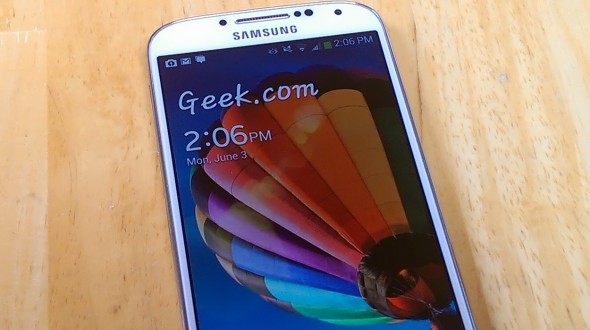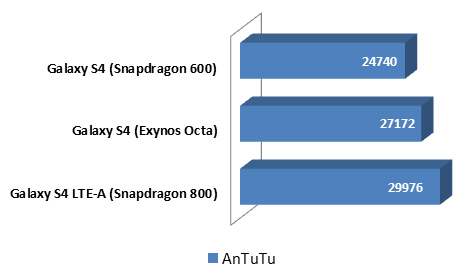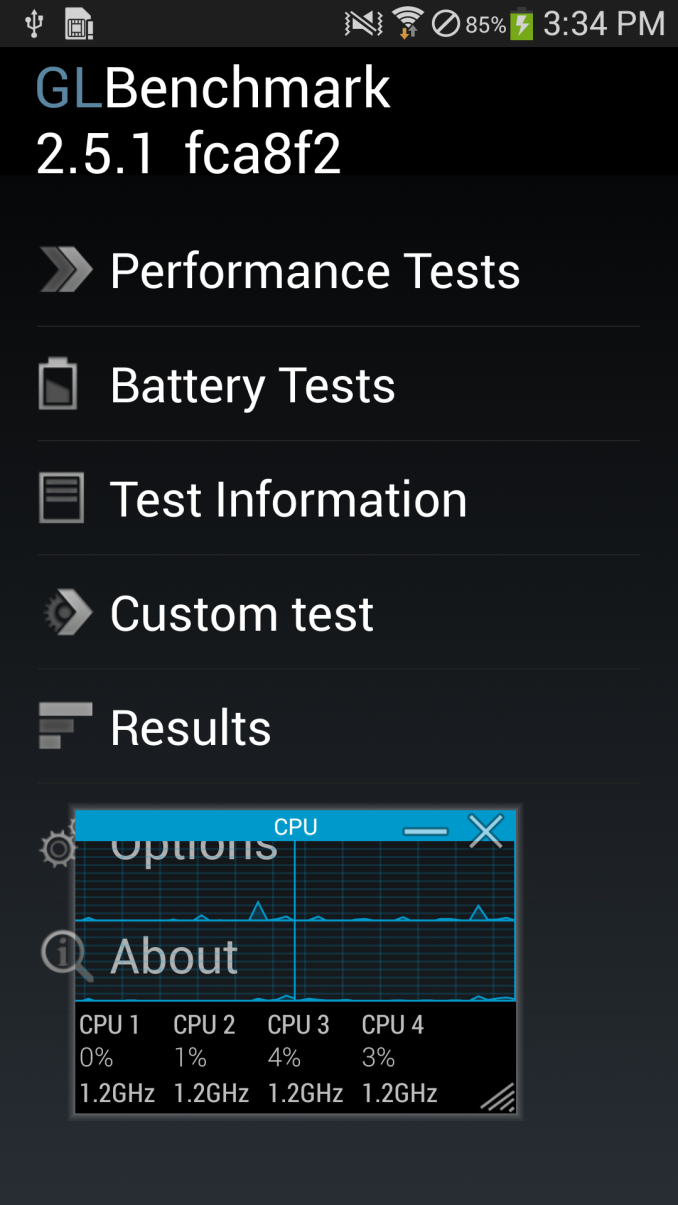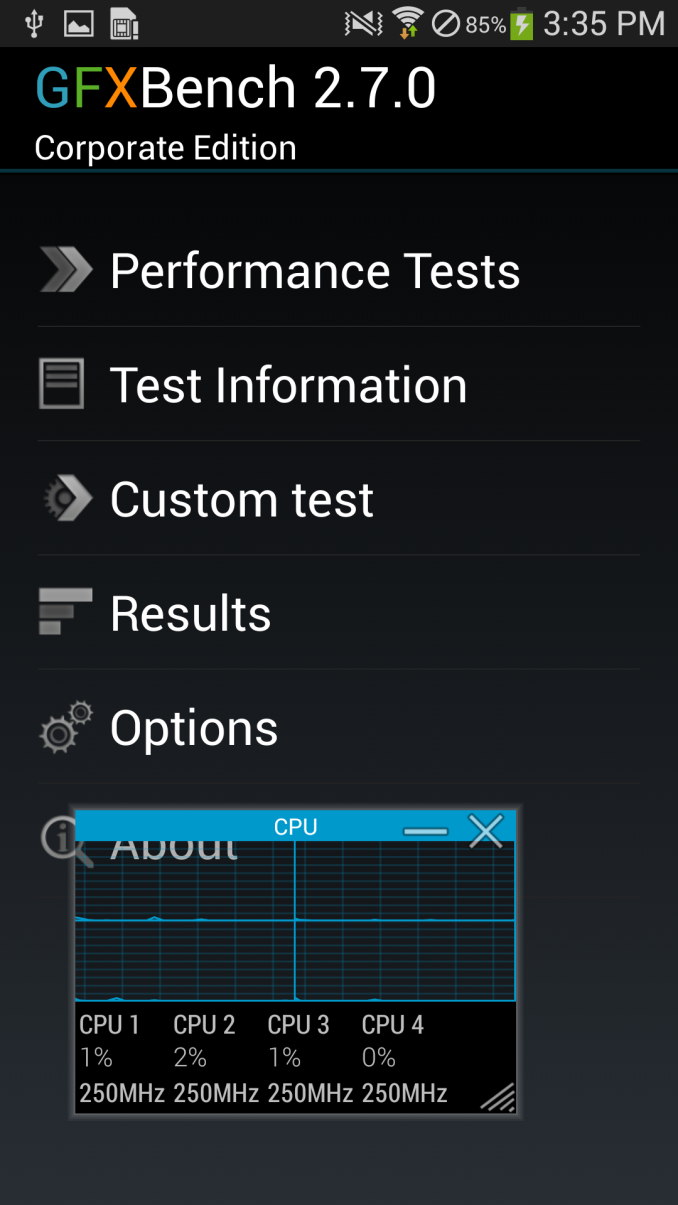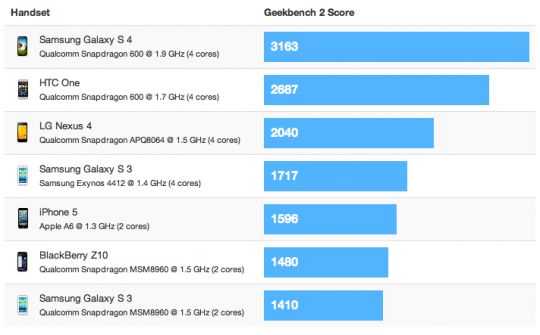Did Samsung Cheat to Make Us Believe the S4 Is More Powerful Than It Really Is?
According to reports, Samsung rigged the S4 to unnaturally perform better in benchmark tests. The report says that Galaxy S4 contains specific code that boosts the clock speed of the CPU and GPU when specific benchmarking apps are running on the phone. But does it matter? Read on..
PHOTO: According to reports, Samsung rigged the S4 to unnaturally perform better in benchmark tests
After receiving a tip that some benchmark apps were behaving a little oddly on the octo-core variant of the Galaxy S4, the guys at Anandtech did what they do best and performed a thorough analysis on the phone. According to their research, this variant of the Galaxy S4 contains specific code that boosts the clock speed of the CPU and GPU when specific benchmarking apps are running on the phone.
Image via geek.comREAD: Did Samsung really 'cheat' to unnaturally perform better in benchmarks?
Samsung has been caught cheating benchmark tests to make itself look better. Basically, the S4 is specifically tweaked to be better at benchmarking than anything else it does.
Anandtech found that the S4 games its GPU to spit out a 533MHz clock speed in certain benchmark tests (AnTuTu, GLBenchmark 2.5.1 and Quadrant) while most every other app and game performance is limited to 480MHz. 533MHz obviously sounds a lot more impressive than 480MHz.
It’s gets better: even the S4′s CPU spits out lies in certain benchmark tests. In GLBenchmark 2.5.1, the CPU clocks in at 1.2GHz and never dips below it. In GFXBench 2.7, the CPU can go to 500MHz (250MHz virtual frequency).
CPU performance in both the Exynos and Qualcomm Snapdragon-powered US variant is also affected; launching one of the whitelisted benchmarking apps causes the processor to jump to the highest performance mode and stay there regardless of the actual workload.
INFOGRAPHIC: Samsung rigging benchmark scores on Exynos devices
While not exactly foul, the practice is far from fair and it is advised that users to not solely choose smartphones based on their benchmark numbers.
Image via techivian.comPoint to remember: Samsung does not claim a specific GPU clock speed for the Galaxy S4
Samsung does not claim a specific GPU clock speed for the Galaxy S4 in its marketing materials, several publications regularly use benchmarking tools to evaluate new devices.
Benchmarks have always had a tenuous relationship with real-world performance, but if what AnandTech alleges is indeed the case, Samsung is giving its flagship smartphone an unfair advantage against the competitors it's put up against in ostensibly objective comparisons.
What is 'clock speed'?
The CPU requires a fixed number of clock ticks (or clock cycles) to execute each instruction. The faster the clock, the more instructions the CPU can execute per second.
webopedia.comThe clock rate typically refers to the frequency at which a CPU is running. It is measured in the SI unit Hertz.
The Samsung S4 benchmark vs iPhone and other smartphones
In this benchmark, the version of Samsung Galaxy S4 used is the Samsung Galaxy S4 US version which has 4 cores. In this benchmark result, this smartphone is compared with another high end smartphones such as HTC One, LG Nexus 4, BlackBerry Z10, iPhone 5, and Galaxy S3 (US and International version), the ancestor of this smartphone.
Image via mobigees.info